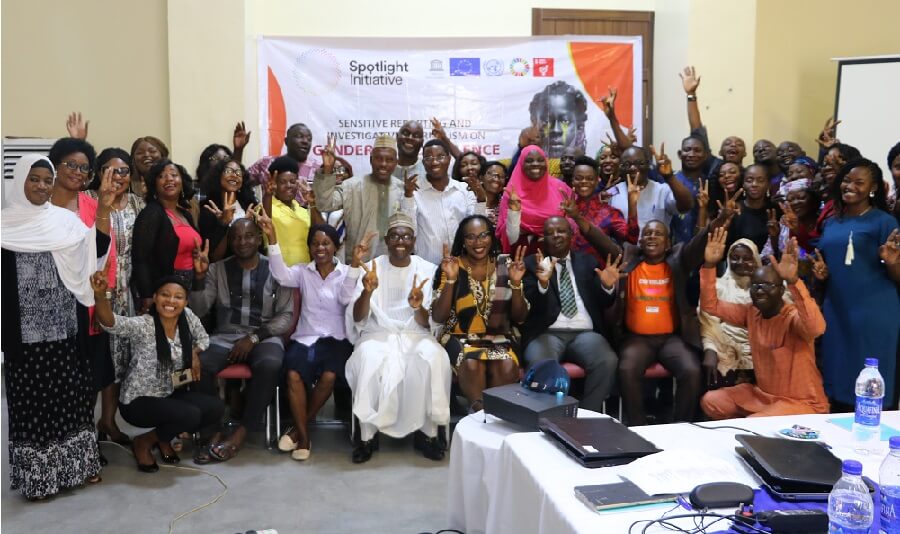The European Union (EU) has set aside 500 million euros to address issues bordering on gender based violence in Africa, Asia, Caribbean, Latin America and the Pacific with Africa having 50% of the share.
This was disclosed by the head of UNESCO Abuja, YDO Yau, during a three-day conference focused on sensitive reporting and investigative journalism of gender based violence (GVB). The conference was organised by UNESCO under its Spotlight Initiative in Lagos.
Advertisement
Speaking during the conference which opened in Lagos, Monday, Yau said the Spotlight Initiative, a 4-year programme by the United Nations, is aimed at eradicating all forms of Gender Based Violence against women and to stop harmful practices.
Yau, represented by Stephen Onyekwelu, Spotlight, Project Manager, expressed the hope that the conference will draw attention to the issue of GBV, and placing it at the center of efforts to achieve gender equality and women’s empowerment.
According to him, GBV is a task in which the media need to place at the front burner for the needed action by all stakeholders.
In Nigeria, five state including the FCT are focus areas of GVB issue. The states are: Sokoto, Lagos, Cross River, Ebonyi, and Adamawa.
Advertisement
He disclosed that the fight in the elimination of GVB is built on six pillars: adequate laws, strengthened institutions, prevention, services by agencies (remedial measures,) provide data and galvanise CSOs to create advocacy.
Declaring the event open, the Lagos State NUJ Council Chairman, Dr. Qasim Akinreti, charged the media to focus on the contexts that engender GBV and get appropriate knowledge on the issue.
According to him, the blame should not be on the victims, rather on the perpetrators of the heinous crimes of GBV.
Dr. Franca Attoh of the Department of Sociology, University of Lagos, in her presentation on the course objectives on sensitive reporting and investigative journalism on GBV, said it was designed to equip journalists with relevant skills and competencies on gender sensitive reportage.
Other objectives include; get reporters acquainted with investigative skills to increase women/girls access to sexual and reproductive health and rights; enhance the quality of reporting by instilling ethical principles and develop capacity for quality information as well as increase awareness on the need to perceive GBV as human rights violation; build a network of advocate on gender sensitive reportage and investigative journalism, and develop a guideline on GBV reportage.Photo: Cross section of participants at the -day training on sensitive reporting and investigative journalism on gender based violence in Lagos.



